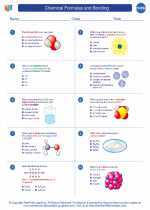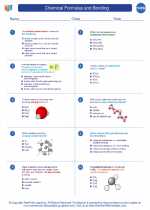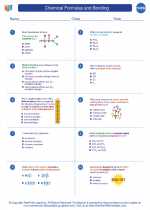Modern Physics
Modern physics is the branch of physics that deals with the study of the behavior of matter and energy at the atomic and subatomic levels. It includes the study of quantum mechanics, relativity, nuclear physics, and particle physics.
Key Concepts in Modern Physics
- Quantum Mechanics: Quantum mechanics is the branch of physics that deals with the behavior of particles at the atomic and subatomic levels. It describes the wave-particle duality of matter and the probabilistic nature of quantum phenomena.
- Special and General Relativity: Special relativity, developed by Albert Einstein, describes the behavior of objects moving at high speeds, while general relativity describes the behavior of objects in gravitational fields.
- Nuclear Physics: Nuclear physics is the study of the behavior and properties of atomic nuclei, including nuclear reactions and radioactive decay.
- Particle Physics: Particle physics deals with the study of the fundamental particles that make up the universe and the forces that govern their interactions.
Study Guide for Modern Physics
To effectively study modern physics, it is important to have a strong foundation in classical physics, including mechanics, electromagnetism, and thermodynamics. Additionally, the following topics should be covered:
- Quantum Mechanics: Understand the principles of wave-particle duality, the Schrödinger equation, quantum states, and the behavior of particles in potential wells.
- Special and General Relativity: Study the concepts of time dilation, length contraction, the equivalence principle, and the bending of light in gravitational fields.
- Nuclear Physics: Familiarize yourself with the structure of the atomic nucleus, nuclear forces, nuclear reactions, and types of radioactive decay.
- Particle Physics: Learn about the Standard Model of particle physics, the fundamental particles (quarks, leptons, bosons), and the four fundamental forces (gravity, electromagnetism, weak nuclear force, strong nuclear force).
Additionally, solving problems and working through numerical exercises related to these topics is crucial for a comprehensive understanding of modern physics.
.◂Chemistry Worksheets and Study Guides High School. Chemical Formulas and Bonding
Worksheet/Answer key Chemical Formulas and Bonding
Chemical Formulas and Bonding  Worksheet/Answer key
Worksheet/Answer key Chemical Formulas and Bonding
Chemical Formulas and Bonding  Worksheet/Answer key
Worksheet/Answer key Chemical Formulas and Bonding
Chemical Formulas and Bonding 

 Worksheet/Answer key
Worksheet/Answer key
 Worksheet/Answer key
Worksheet/Answer key

The resources above cover the following skills:
PHYSICAL SCIENCE (NGSS)
Matter and Its Interactions
Students who demonstrate understanding can:
Plan and conduct an investigation to gather evidence to compare the structure of substances at the bulk scale to infer the strength of electrical forces between particles.